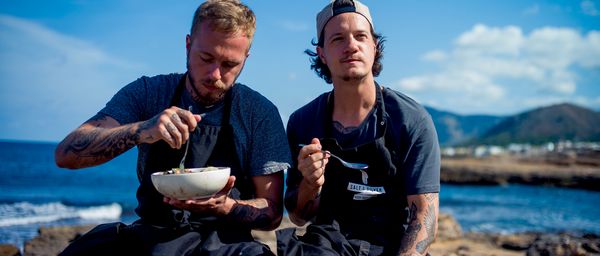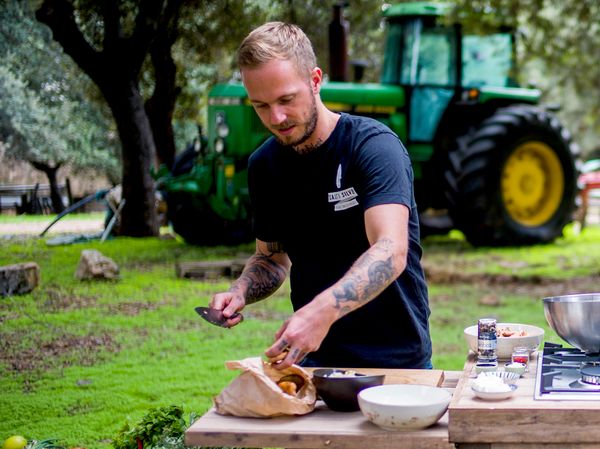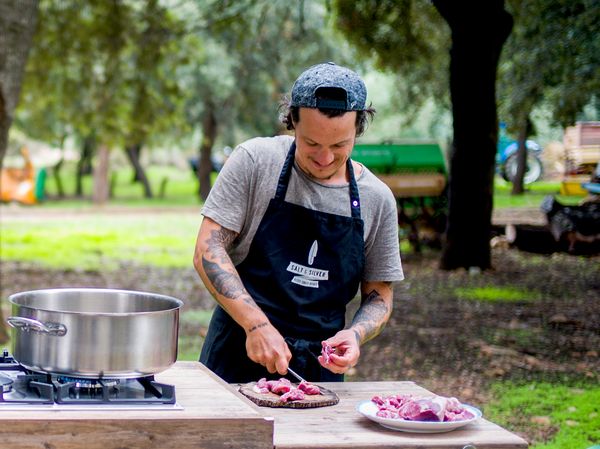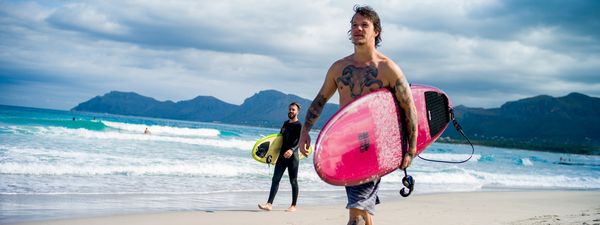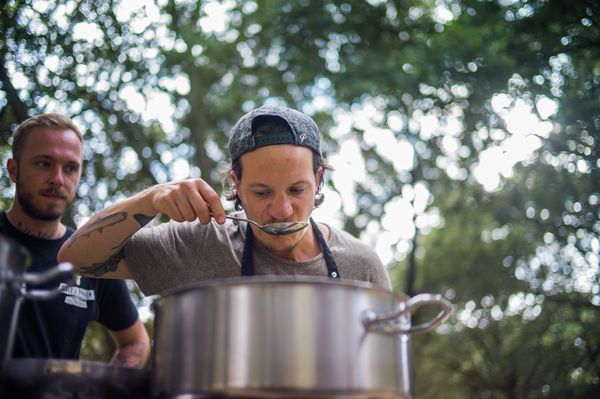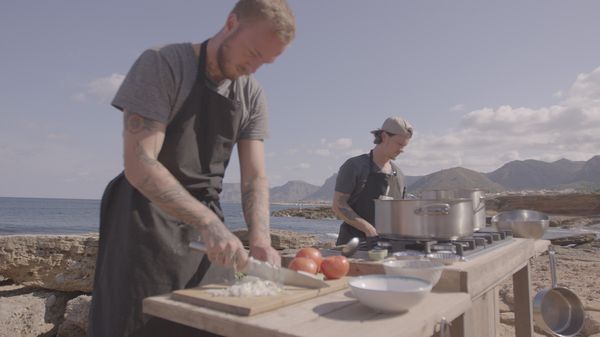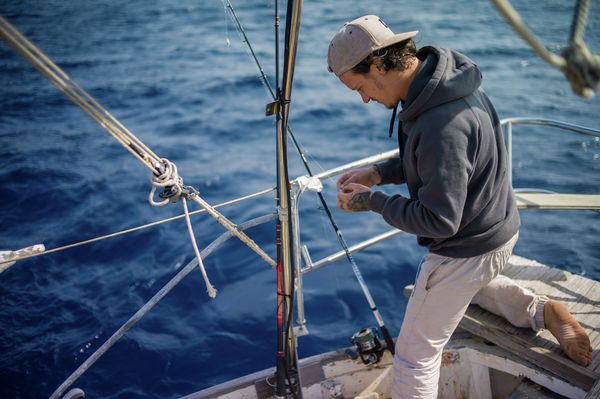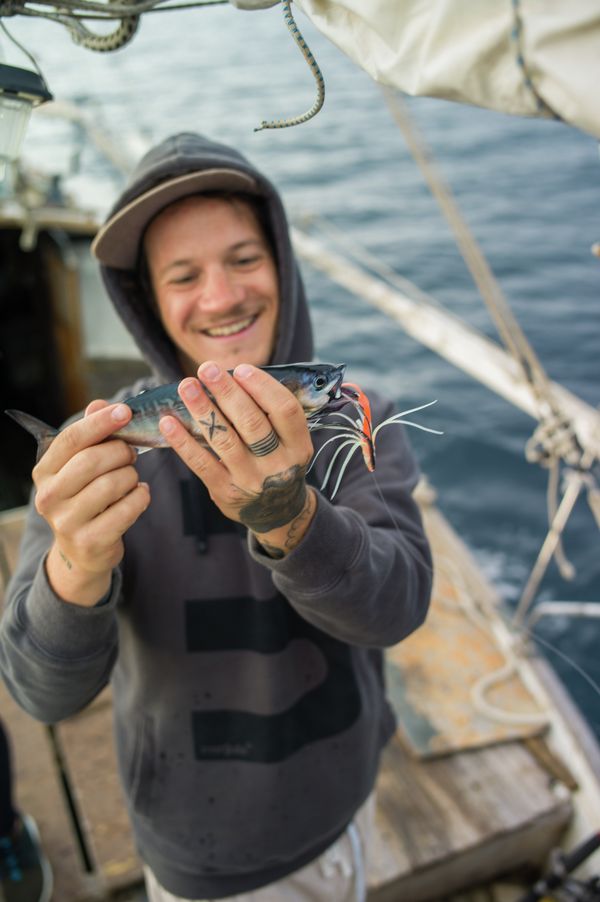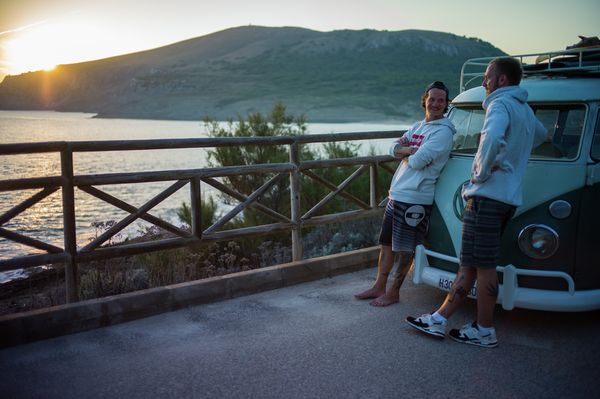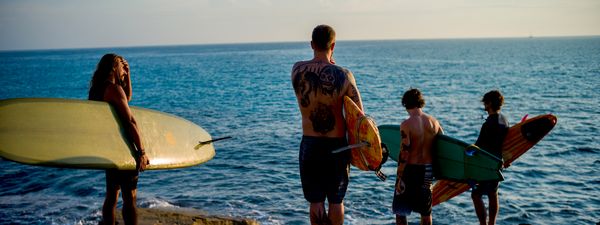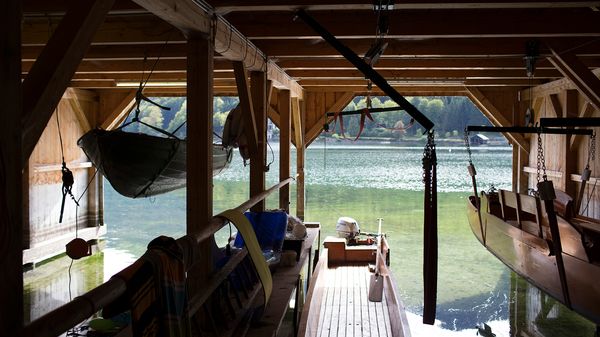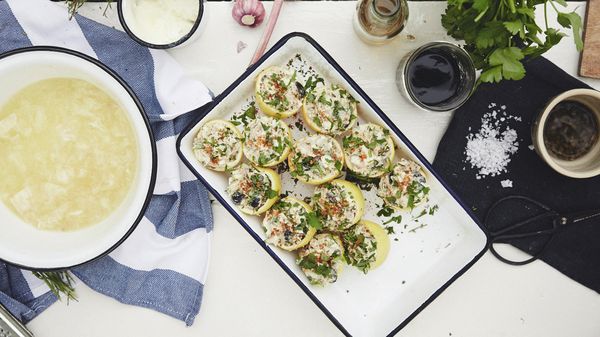Thomas Kosikowski (top left) and Johannes Riffelmacher are living the dream:
three years ago, they quit their jobs at an advertising agency, and they’ve been travelling, cooking, and surfing ever since. In 2014, they made their way through South America, finding out about the best surfing spots and tastiest treats between Cuba and Chile, documenting their discoveries in the form of a book, Salt and Silver. With 141 recipes from eight countries, the cookery book presents the cuisines of each country, focusing on dishes as diverse as ropa vieja, a Cuban beef stew, Mexican fish tacos, and a soup with banana leaves from Nicaragua.
